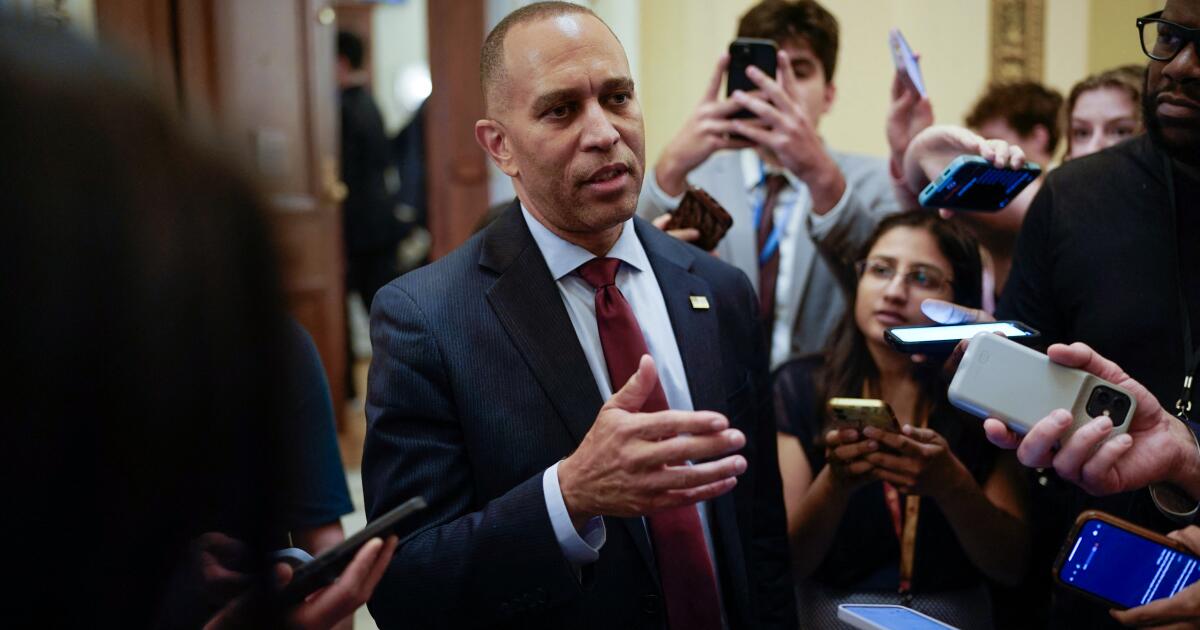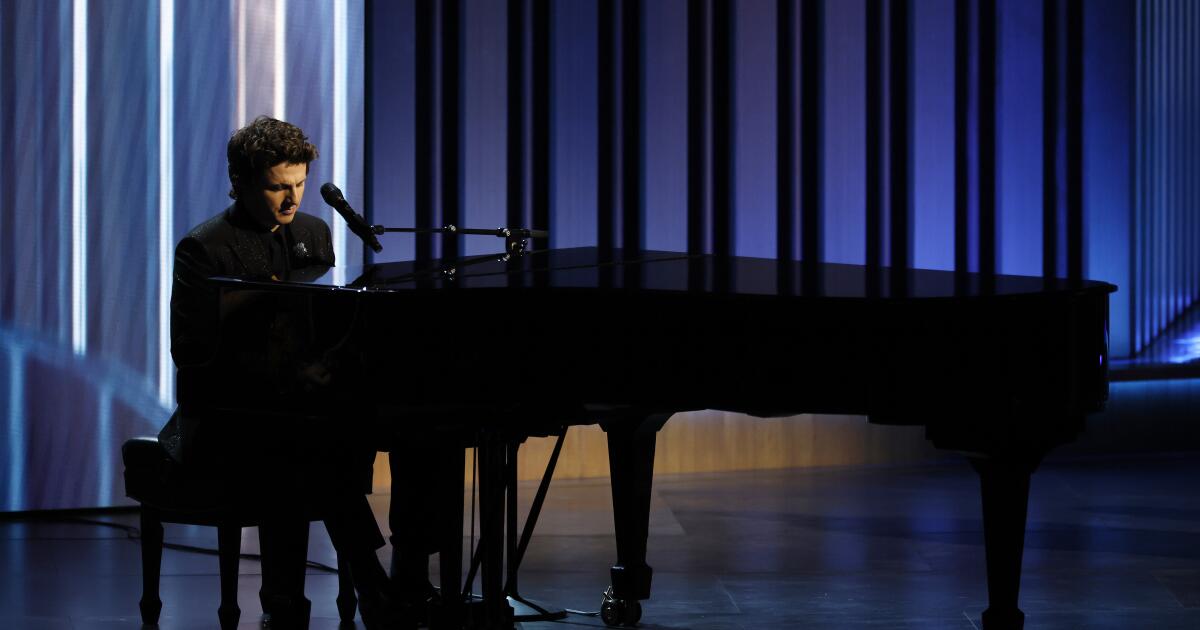WASHINGTON — There’s no filibuster in the House, but Democratic leader Hakeem Jeffries essentially conducted one anyway.
Jeffries held the House floor for more than eight hours Thursday, taking his “sweet time” with a marathon floor speech that delayed passage of Republicans’ massive tax and spending cuts legislation and gave his minority party a lengthy spotlight to excoriate what he called an “immoral” bill.
As Democratic leader, Jeffries can speak for as long as he wants during debate on legislation — hence its nickname on Capitol Hill, the “magic minute,” that lasts as long as leaders are speaking.
He began the speech at 4:53 a.m. EDT and finished at 1:37 p.m. EDT, 8 hours, 44 minutes later, breaking the record set by then-Rep. Kevin McCarthy (R-Bakersfield) in 2021, when he was the GOP leader. McCarthy spoke for 8 hours, 32 minutes when he angrily criticized Democrats’ “Build Back Better” legislation, breaking a record set by Rep. Nancy Pelosi (D-San Francisco), when she spoke about immigration for 8 hours, 7 minutes in 2018.
“I feel an obligation, Mr. Speaker, to stand on this House floor and take my sweet time,” Jeffries said as he opened.
The speech pushed a final vote on Republican President Trump’s tax bill, initially expected in the early morning, into the daylight hours. The New York Democrat used the time to criticize the bill’s healthcare and food aid cuts, tax breaks for the wealthy and rollbacks to renewable energy programs, among other parts of the bill that Democrats decry.
He also killed time by riffing on hip-hop, King George III and his own life story, among other diversions. He called out Republicans who have voiced concerns about the bill, read stories from people concerned about their health care from those GOP lawmakers’ districts and praised his own members, some of whom sat behind him and cheered, clapped, laughed and joined hands.
“This reckless Republican budget is an immoral document, and that is why I stand here on the floor of the House of Representatives with my colleagues in the House Democratic caucus to stand up and push back against it with everything we have,” Jeffries said.
He ended the speech in the cadence of a Sunday sermon, with most of the Democratic caucus in a tight huddle around him. One colleague called out, “Bring it home, Hakeem!”
“We don’t work for President Donald Trump,” Jeffries said, as a handful of Republicans across the aisle sat silent and occasionally snickered at the leader as he kept talking.
He invoked the late John Lewis, a civil rights activist in the 1960s and longtime Democratic congressman from Georgia. “Get into good trouble, necessary trouble,” Jeffries said. “We’re going to press on until victory is won.”
Jeffries sneaked small bites of food and drank liquids to boost his energy, but did not leave the chamber or his podium. The speech would be over if he did.
Democrats were powerless to stop the huge bill, which Republicans are passing by using an obscure budget procedure that bypasses the Senate filibuster. So they were using the powers they do have, mostly to delay. In the Senate, Democratic leader Chuck Schumer of New York forced Senate clerks to read the bill for almost 16 hours over the weekend.
Sen. Cory Booker (D-N.J.) similarly gained attention in April when he spoke for more than 25 hours on the Senate floor about the first months of Trump’s presidency and broke the record for the longest continuous Senate floor speech in the chamber’s history. Booker was assisted by fellow Democrats who gave him a break from speaking by asking him questions on the Senate floor, but Jeffries’ “magic minute” did not allow for any interaction with other members.
Republicans who were sitting on the floor when Jeffries started trickled out, leaving half the chamber empty. When the speech was over, House Ways and Means Committee Chairman Jason Smith (R-Mo.) called it “a bunch of hogwash.”
The speech “will not change the outcome that you will see very shortly,” Smith said.
After the bill passed, House Majority Leader Steve Scalise said that Democrats “wanted to speak for hours and hours and break records because they wanted to stand in the way of history.”
Jalonick writes for the Associated Press. A.P. writers Matt Brown, Kevin Freking, Lisa Mascaro and Leah Askrinam contributed to this report.


